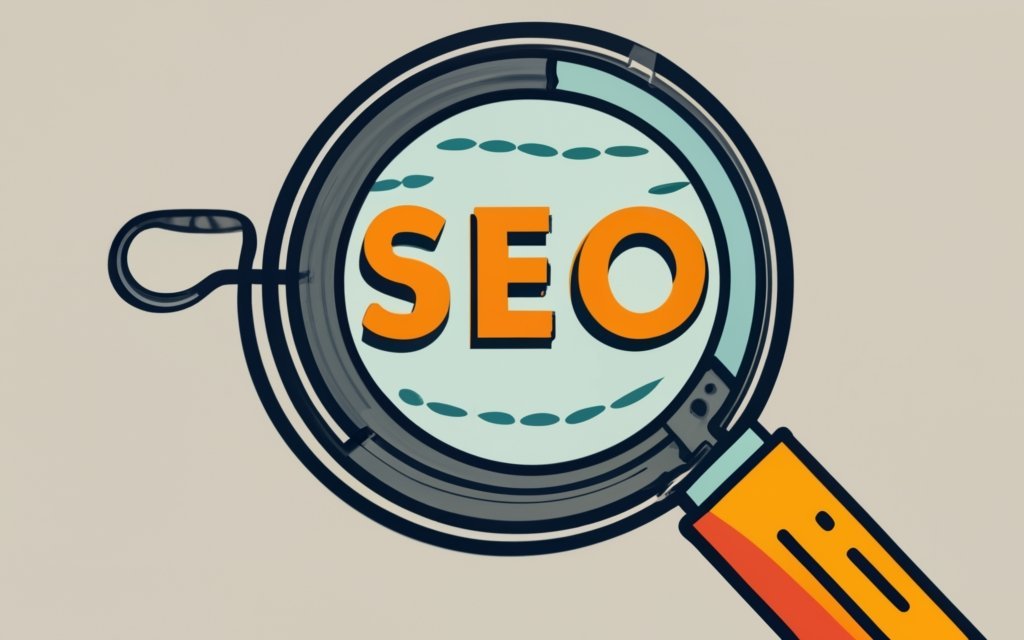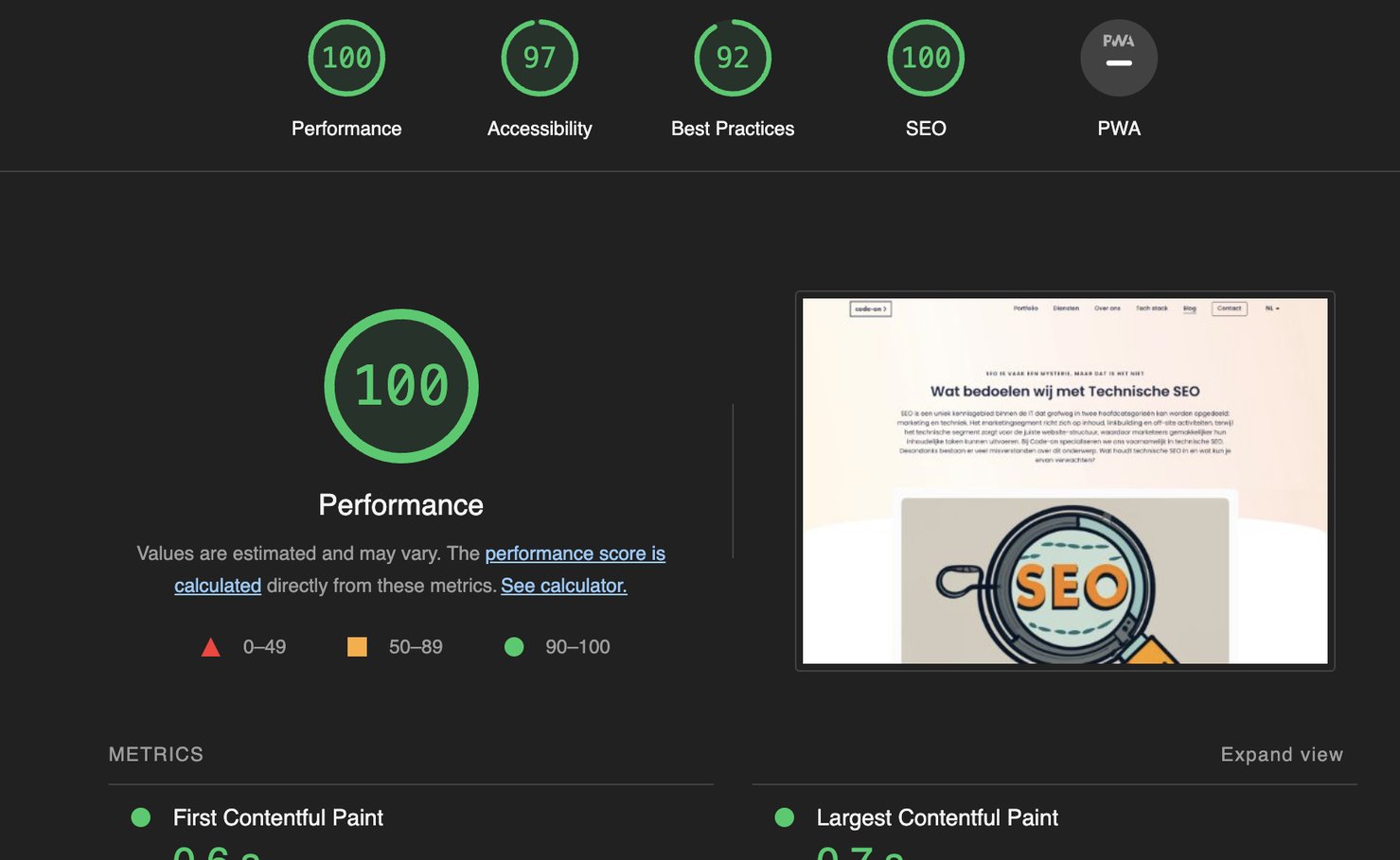What do we mean by Technical SEO
SEO is a unique area of knowledge within IT that can be roughly divided into two main categories: marketing and technical. The marketing segment focuses on content, link building and off-site activities, while the technical segment provides the right website structure, making it easier for marketers to perform their content tasks. At Code-on, we specialize primarily in technical SEO. Nevertheless, there are many misunderstandings about this topic. What does technical SEO entail and what can you expect from it?

First, it is important to emphasize that a Web site should not be built primarily for Google, but for the user. If you design a Web site specifically for Google, you will end up disappointed. This is because Google is constantly adjusting its algorithm; what was effective yesterday may not be today. That's why our advice is always: build the website with the user in mind. Generally speaking, what is good for the user is also viewed positively by Google's algorithm.
I invite anyone who is interested SEO to watch Google Webmaster Central videos regularly. You will indeed learn there that you should always create the website for your users but also the inners and outs about technical SEO. You will also find that there are an awful lot of little details to achieve perfection.
Nevertheless, achieving good SEO is certainly not a given. While you can have perfect texts, if your site falls short on a technical level, Google is likely to consider it a minus in its more than 200 ranking factors.
Take, for example, two similar Web sites with similar content: if one site has paid little to no attention to technical SEO and the other has, the latter is likely to rank better in search engines. Therefore, it is crucial to pay adequate attention to technical SEO.
SEO is essentially about competition between different websites: whoever ranks better climbs higher up the ladder. But how do you achieve good technical SEO? It is often presented as some kind of voodoo or magic, but it is absolutely not. Let me explain:
First, there are some fundamental aspects that are important. Every page should have a clear structure, which means that the HTML elements such as <nav>, <main>, <article>, <p>, <h1>, <ul> and <h2> should be in logical and correct places. They should also be placed in a logical order. In addition, the content of these elements is crucial. For example, a <h1> tag with only one or two words may not score as well as a more descriptive <h1>. Thus, a Web developer must have a good eye for what the appropriate <h1>, <nav>, and so on will be.
In addition to the standard HTML tags, it is also essential that each page have a well-worded URL and the correct meta title. These can boost the page by providing additional context. A common misconception is that the meta description directly affects page rankings. However, this is only indirectly the case. The meta description primarily affects the click-through rate (Click Through Rate or CTR) and not the actual ranking. Google can choose whether or not to show the meta description in the search results.
The above points are often overlooked by Web developers, sometimes because of complexity, difficulty with CSS, ignorance, or for cost reasons. Once the HTML and CSS are well structured, we can focus on additional factors.
One important one is page loading speed. Therefore, among other things, we use the latest technologies. For example, since 2023 we have switched to using WEBP and AVIF formats, both of which contribute to faster loading times. AVIF is supported by most browsers; if not, we fall back to WEBP or, if that too is not possible, JPG or PNG.
Another factor that affects load time is the location of the server, the server used and the software. Our websites are built with Python, Django and Wagtail, which are known for their speed. Because we use few to no plugins, we can optimize our code for faster load times.

At Code-on, we primarily use Google's own tools for technical SEO analysis, including Google Search Console and the lesser-known, but no less valuable, Lighthouse. Lighthouse is accessible through the inspection tools in the Chrome browser and offer concrete recommendations that you can address in a systematic way. Although there are alternative tools such as WooRank and SEMrush available that are often used by SEO marketers, we prefer Google's tools because we on concentrate on the technical aspect and they come from Google itself. This approach allows us to focus with high precision on aspects that actually affect search results. Your marketer will probably use Sem Rush or ahrefs and others.
There are some obvious things that should not be overlooked in technical SEO, such as sitemap.xml, robots.txt, canonical links, hreflang and a well-designed navigation structure. Below I explain some other important aspects:
A few more basic things we look out for.
Mobile Responsiveness
Canonical Tags
Schema Markup
Internal Links
Sitemap.xml
robots.txt
One aspect that we at Code-on are increasingly focusing on is WAI-ARIA (Web Accessibility Initiative - Accessible Rich Internet Applications). While this does not directly affect search engine rankings, we must not forget that Google is striving to provide the best user experience. By implementing WAI-ARIA, we improve the user experience, which can indirectly contribute to a better ranking in Google.
